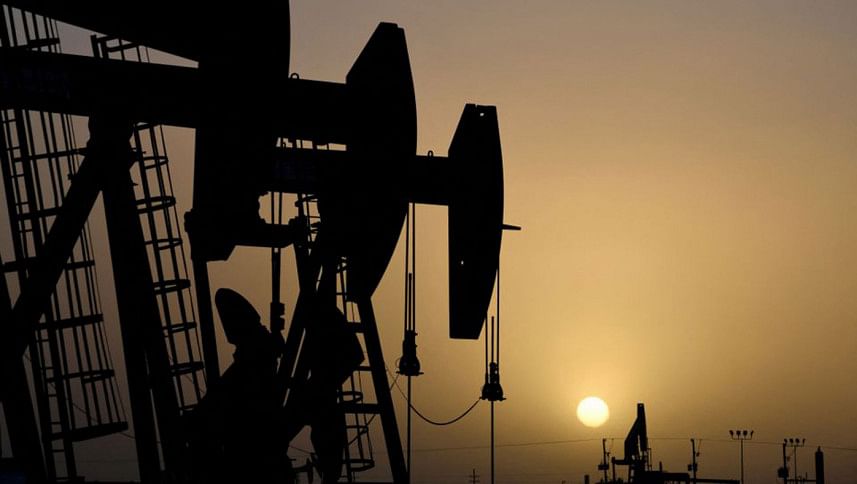Oil settles up 5% as further interest rate hikes loom

Oil prices settled up by more than 5 per cent on Friday amid uncertainty around future interest rate hikes by the US Federal Reserve, while a looming EU ban on Russian oil and the possibility of China easing some COVID restrictions supported markets.
Though fears of global recession capped gains, Brent crude futures settled up $3.99 to $98.57 per barrel, a weekly gain of 2.9 per cent.
US West Texas Intermediate (WTI) crude futures were up $2.96, or 5 per cent, at $92.61, a 4.7 per cent weekly gain.
China is sticking to its strict COVID-19 curbs after cases rose on Thursday to their highest since August, but a former Chinese disease control official said substantial changes to the country's COVID-19 policy are to take place soon.
China's stock markets have been buoyed this week by the rumours of an end to stringent lockdowns despite the lack of any announced changes.
However, signals about the size of US interest rate hikes caused oil to pare some gains.
The US Labor Department's non-farm payrolls report on Friday showed a rise in the unemployment rate to 3.7 per cent last month from 3.5 per cent in September, suggesting some loosening in labor market conditions that could give the Fed cover to shift towards smaller rate increases.
Richmond Federal Reserve President Thomas Barkin on Friday said he is ready to act more "deliberatively" on consideration of the pace of future US interest rate hikes, but said rates could continue rising for longer and to a higher end point than previously expected.
"The China re-opening talk this morning got oil going, but the various Fed representatives have been making it clear there's a long way to go with respect to interest rate hikes, and oil markets are more sensitive to that," said John Kilduff, partner at Again Capital LLC.
While demand concerns weighed on the market, supply is expected to remain tight because of Europe's planned embargoes on Russian oil and a slide in US crude stockpiles.
"The slight weakness in the dollar, the upcoming ban on Russian oil sales are certainly supportive as focus is shifting from recession fears to supply issues," said PVM Oil Associates analyst Tamas Varga.
"The main catalyst, however, is reports that China may ease its zero-Covid restrictions, which would be a boon to its economy and oil demand."
The EU ban on Russian crude imports is due to take effect from Dec. 5. Details of G7 price cap aimed at alleviating constraints on Russian flows outside the EU are still under discussion.
RECESSION FEARS
On the bearish side, fears of a recession in the United States, the world's biggest oil consumer, grew on Thursday after Fed Chairman Jerome Powell said it was "very premature" to be thinking about pausing interest rate hikes.
"The spectre of further rate hikes dimmed hopes of a pick-up in demand," ANZ Research analysts said in a note.
The Bank of England warned on Thursday that it thinks Britain has entered a recession and the economy might not grow for another two years.
Underscoring demand concerns, Saudi Arabia lowered December official selling prices (OSPs) for its flagship Arab Light crude to Asia by 40 cents to a premium of $5.45 a barrel versus the Oman/Dubai average.
The cut was in line with trade sources' forecasts, which were based on a weaker outlook for Chinese demand.
Looking into next week, investors are awaiting the US Energy Information Administration's short-term energy outlook and the November US Consumer Price Index for insight on the pace of inflation.

 For all latest news, follow The Daily Star's Google News channel.
For all latest news, follow The Daily Star's Google News channel. 






Comments